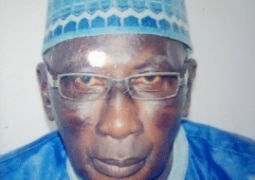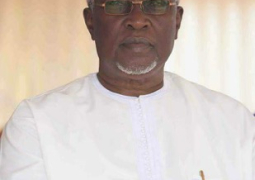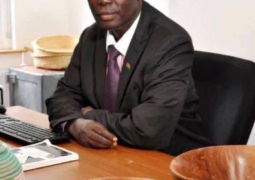
During the past week, China’s “Two Sessions”, the third sessions of the 13th National People’s Congress (NPC) and the 13th National Committee of the Chinese People’s Political Consultative Conference (CPPCC), were held successfully in Beijing. The annual “Two Sessions” have always been an important opportunity for the international community to observe where China is heading especially at this very challenging time of combating the COVID-19 pandemic. This year’s “Two Sessions” clearly conveyed China’s firm resolve in coordinating epidemic prevention and control with economic and social development, and will surely add more confidence and impetus to global development. Among other things, the decision to establish and improve a legal framework and enforcement mechanism for safeguarding national security in China’s Hong Kong Special Administrative Region (HKSAR) was adopted by the NPC on 28 May, which attracted worldwide attention.
Most Gambian and African friends may be less familiar with Hong Kong though some may have possibly visited or learned about the beautiful southern coastal city of China located at the Pearl River Delta. In order to see more of the whole picture, it is necessary to know about the history of the city first.
The Hong Kong issue was left over from history. Hong Kong (including the Hong Kong Island, Kowloon and the New Territories) is a part of China’s territory since the ancient times. Britain Launched the Opium War against China in 1840 and compelled the Qing government to sign the Treaty of Nanking, permanently ceding the Hong Kong Island to it. Britain and France launched the Second Opium War in 1856. In 1860, Britain forced the Qing government to sign the Convention of Peking, permanently ceding to it the southern tip of the Kowloon Island. In 1898, exploiting the establishment of sphere of influence in China by imperialist powers, Britain again forced the Qing government to sign the Kowloon Extension Agreement, “leasing” large area of land north of the Boundary Street of the Kowloon Island and over 200 islets nearby(later called the New Territories) for a term of 99 years until June 30, 1997. The Chinese people have always been opposed to these three unequal treaties.
After the founding of the People’s Republic of China in 1949, the Chinese government took a consistent position over Hong Kong: Hong Kong is a part of China’s territory. China does not recognize the three unequal treaties imposed on it by imperialism. The Hong Kong issue should be resolved through negotiation when conditions permit, and the existing status of Hong Kong should be maintained pending a solution.
In early 1980s, China’s state leader Deng Xiaoping put forward the “One Country, Two Systems” solution in an effort to realize the peaceful reunification of China. According to Deng, this solution means there is only but one China and under such premise the mainland adheres to the socialist system while Hong Kong, Macau and Taiwan may retain their capitalist systems over a long time to come. With this design, on 19 December 1984, the governments of China and the UK signed the Joint Declaration on the Question of Hong Kong in Beijing. As per this document, on 1 July 1997, the Chinese government resumed its exercise of sovereignty over Hong Kong. Since then, the Joint Declaration has completed its historical mission. In accordance with the Chinese Constitution and the Basic Law of HKSAR, the policies of “One Country, Two Systems” with Hong Kong people governing Hong Kong and a high degree of autonomy under the leadership of the central government of China have been implemented, and Hong Kong residents’ rights and freedom have been fully safeguarded.
However, there remained a clear loophole in Hong Kong’s legal system and an absence of a mechanism of enforcement. All this has left Hong Kong “unprotected”. Especially since the turbulence over proposed legislative amendments last June, people have seen increasingly rampant activities by “Hong Kong independence” organizations and radical localists in Hong Kong, escalating violence and terrorist activities as well as excessive, unlawful foreign meddling in Hong Kong affairs. All this has placed national security in serious jeopardy and posed a grave threat to Hong Kong’s prosperity and stability and the practice of “One Country, Two Systems”. Under such circumstances, establishing a legal system and enforcement mechanisms for safeguarding national security in HKSAR has become a pressing priority. The Chinese Central Government cannot just sit by and do nothing.
Therefore, as the supreme organ of state power in China, and in accordance with the Constitution and the Basic Law of Hong Kong, the NPC has the power and responsibility to deliberate on the legislation for upholding national security in HKSAR. A legislative process will be set in motion following the adoption of the NPC decision. Undoubtedly, the fundamental purpose by doing this is to safeguard China’s sovereignty, security and development, and ensure the advancement of “One Country, Two Systems” in the right direction. It’s worth noting that the NPC decision targets a very narrow category of acts that seriously jeopardize national security, and has no impact on Hong Kong’s high degree of autonomy, the rights and freedoms of Hong Kong residents or the legitimate rights and interests of foreign investors in Hong Kong.
A stable Hong Kong serves the interests of all. We are confident that with the support of the central government of China and under the leadership of HKSAR government, Hong Kong will embrace more stability and prosperity under the rule of law. We trust that the NPC’s legislative decision will receive understanding and support from all those who wish to see a stable Hong Kong and the sound and sustained implementation of “One Country, Two Systems”. Hong Kong affairs are China’s domestic affairs, and no foreign interference shall be allowed. The Chinese central government holds the primary and ultimate responsibility for national security in all sub-national administrative regions, as is the case in any other country.
China and African countries have painful experience back in colonial times, through which we turn to be soberly aware that national security must lie in our own hands. And ever since the independence and national liberation, we have been managing to safeguard each other’s sovereignty, security and development interests, and rendering mutual firm support on that. I assume that Gambian and African brothers will understand and support China’s position and actions to uphold sovereignty and security, ensure Hong Kong’s prosperity and stability, and oppose foreign interference in Hong Kong affairs.
Read Other Articles In Opinion





